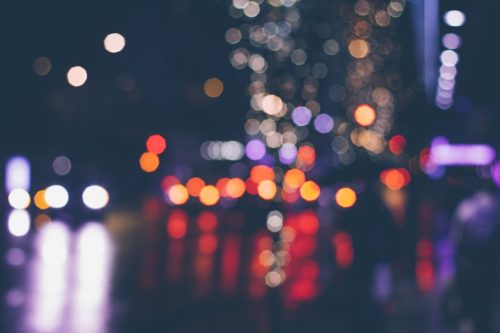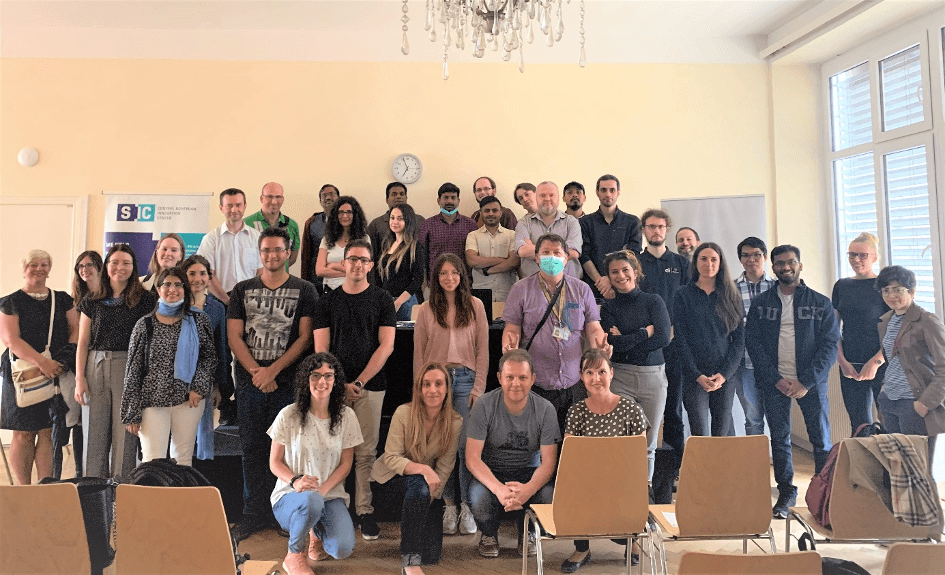
Let’s turn off needless lights
The Let’s turn off needless lights initiative has been inspired by the International Dark Sky Week that has just ended as well as by recent celestial phenomena – the Supermoon, many days of clear night skies and sights of spring constellations, recent conjunction of Venus with the crescent Moon, all of which are better visible from locations with minimum light pollution. However, the main impetus has come from general public, who have been asking whether all lights really need to be turned on.
“People have been asking why our cities continue to be fully illuminated although there are no people in the streets,” says Pavel Suchan, Chairman of the Dark Sky Expert Group and a member of an interministerial working group for light pollution led by the Ministry of Environment. He adds: “We all can see how the nature is taking a rest from people. However, we have forgotten about nocturnal animals whose biotopes we have been interfering with by our increasingly extensive lighting. In addition, we should save every crown to remedy economic damage. Turning off needless lights may help with that. I am stressing the word ‘needless’. Just look around and see for yourselves.”
New initiative: Let’s turn off needless lights
Streets have been empty during the state of emergency but lights continue to shine as usual. All night and everywhere, illuminating the streets, parking lots at supermarkets, historic monuments no-one is looking at, industrial premises where no-one is working. When life starts returning to the usual, we will need to watch every penny and focus on the key aspects of the society. Pointless illumination is definitely not one of them. Let’s turn off the lights we do not need! Please look around. Start with your house – do you have a lamp in the backyard or at the gate on all night? Look around your town or village – is there a lamp on the outskirts that is pointless? Ask your mayors if they dim streetlights at night (official regulations allow for that, lights keep shining but wildlife gets some relief). How about manufacturers, have you temporarily discontinued production? Could you turn off at least some of the lights on your premises?
We are not asking for measures that would compromise safety and security. We are calling for measures to save money that we will all badly need to recover from the crisis. We are calling for protection of nocturnal wildlife and the environment since we are part of it. Let’s turn off needless lighting.
The initiative has been initiated by the Dark Sky Expert Group of the Czech Astronomical Society – https://www.astro.cz/spolecnost/usporadani-spolecnosti/odborne-skupiny/odborna-skupina-pro-tmave-nebe.html, www.svetelneznecisteni.cz.
Krakow was first
The municipal technical services company in the Polish city of Krakow has been turning streetlamps off every night between midnight and 4 a.m. to cut costs. They argue that city streets are empty at that time anyway due to restrictions related to the coronavirus pandemic. The most well-known sights in Krakow – Wawel Castle and the Church if Virgin Mary in the city’s Main Square – which are otherwise illuminated, have darkened. Michal Pyclik from the technical service company explained that streetlamps are turned off at a time when people have accomplished everything they need outside their homes and when public transport service ends for the day. The light is back on when Krakowians go to work for their morning shifts. This enables the city to save 20 thousand zloty every night, an equivalent of nearly 5000 US dollars. By the way, many Czech villages do the same.
Two examples for all
It is not just us who have noticed that annoying night illumination has been growing, but people have been writing to the Dark Sky Expert Group of the Czech Astronomical Society to complain. Let’s quote two of them. Both are closely related to the section on COVID-19 below:
“The situation in our street has worsened. We used to have orange-tainted sodium lamps on short posts. Now, we have LED lamps, which is not bad on its own, but they are installed on poles six or so meters tall, shine very brightly and have no shades, so we had to install window blinds even on the first floor. In addition, there is a pedestrian crossing right outside our house, which is illuminated even more brightly…”
“I have just written a letter to a company that placed a light panel opposite our house. The panel shines all night so brightly that the light penetrates our window blinds.”
Which lighting is needless?
Tomáš Zelenka from the village of Zvole, just outside Prague, monitored lighting long before our call: “I have been monitoring needless lighting using a camera trap and a whole sky camera. In the period between November 2019 and 15 April 2020, two people passed underneath four streetlamps. My cameras have also captured 96 pieces of wild cloven-hoofed game, 6 badgers, 28 foxes, 26 weasels, 4 wild boars, 36 hares, 8 eagle-owls, 16 brown owls, 76 cats, and 2 stray dogs. Over the past month, there have been many bats, but they are hard to count as they zip around really fast. Insects start to accumulate. Both pedestrians headed to the woods and had headlamps, unlike the rest of the creatures. Between 18 November 2019 and 15 April 2020, a total of 27 cars drove by the streetlamps. They all had their headlights on. The streetlamps shone for 2,133 hours over the period.”
COVID-19, melatonin, and the need of darkness
It is not a cure-all, but it is important. The initiative will also address light-related issues associated with the current pandemic. Here is a paper on the topic by Zdenka Bendová, head of the Department of Physiology, Faculty of Science, Charles University:
Immunity response, immunity boost, cytokine storm, cellular immunity, vitamin C, vitamin D… all those are expressions that have been teaching us about the functioning of the immunity system over the past few weeks. There have been many reports about the importance of sleep for our immunity but less often do we hear that it is essential to sleep in darkness. Sleep on its own strengthens the immunity system and darkness is crucial for the quality of sleep. Darkness is also key for another function which is related to sleep only indirectly, but directly to the functioning of the immunity system – ensuring a sufficient level of melatonin. Melatonin is known as the sleep hormone that helps us fall asleep, but its primary function is to boost the body’s immunity response.
Melatonin is produced in the pineal gland or epiphysis and its synthesis is triggered by signals from the biological clock located in suprachiasmatic nuclei in the hypothalamus so that it starts in the evening. However, if we are exposed to artificial light long into the night, melatonin synthesis is delayed or will not start at all, or its level will not rise enough to make any difference in the body. It would be wrong to assume that by hiding in darkness throughout the day, we can compensate for the deficiency caused by spending night hours in front of the computer screen. The biological clock knows the time of day and will not trigger melatonin production even in the darkest cellar. On the contrary, the biological clock needs a lot of daylight for many reasons (not just vitamin D) as well as maximum darkness at night.
In (not so) distant past, when there was no artificial lighting, melatonin levels fluctuated with the length of the night throughout the year. In winter, the pineal gland produced at least twice as much melatonin as in summer. That means that the amount was higher at a time when the immunity system is usually under a great stress.
In recent years, there has been too much light at night around us. Light has become cheap and only a handful of experts study its biological effects. However, it is becoming increasingly apparent that it pays to care for your biological clock and melatonin production. Let’s turn off the lights at night – not only at home, but also outside, because birds, insects, squirrels, fish in the river… they all have melatonin in their bodies that supports their immune systems and dislikes light at night.
Source: Astronomical Institute







